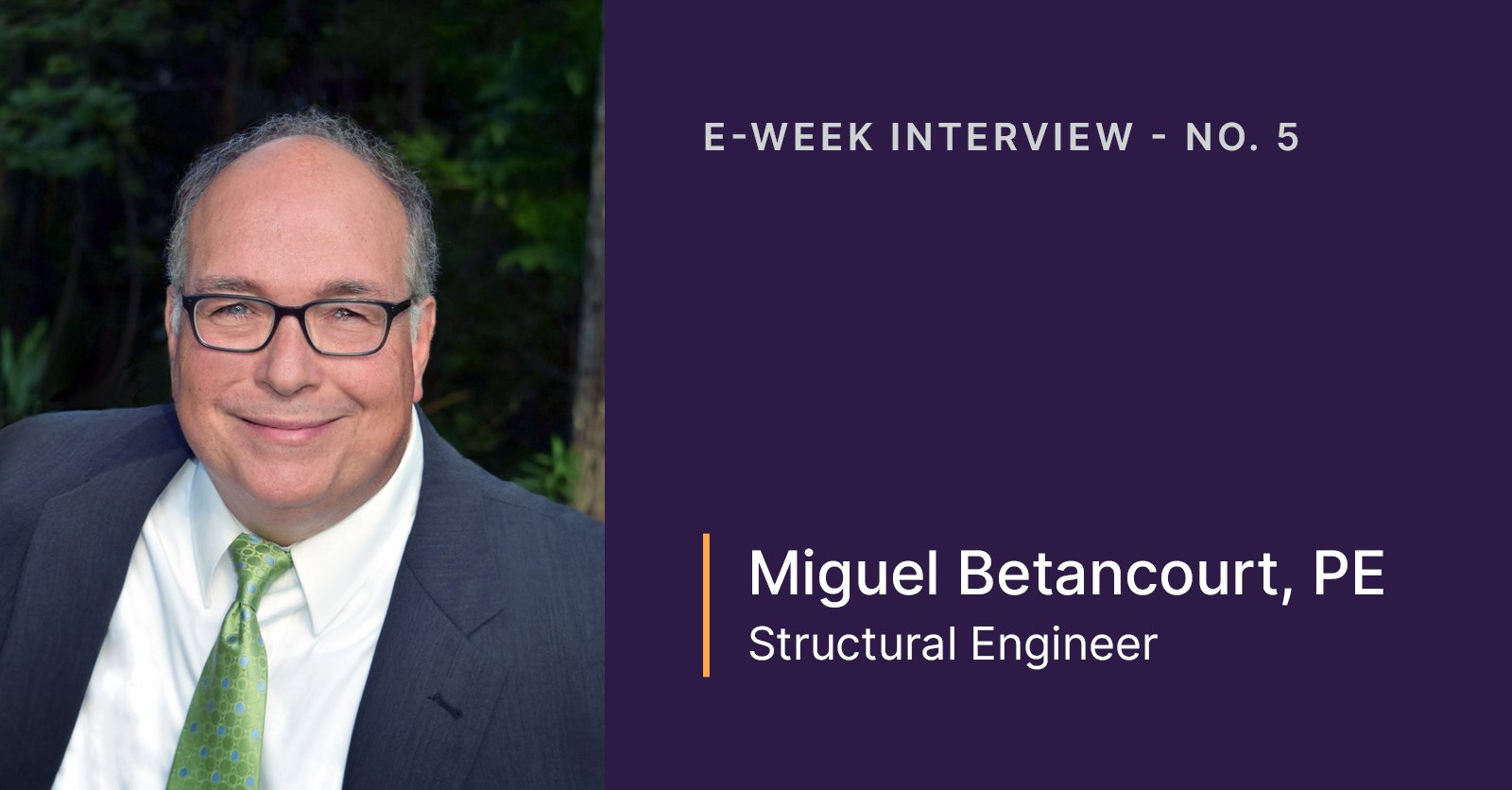
ABOUT THIS SERIES
In 1951, the National Society of Professional Engineers initiated Engineer’s Week to highlight the important role engineers play in our society. It’s been celebrated every year since. E-Week events and publicity also focus on attracting young people to the profession.
In honor of E-Week, we’ve asked some of WBRC’s newer engineers and engineers-to-be about their chosen careers.
Miguel Betancourt, PE – Structural Engineer
Miguel Betancourt is a highly-experienced structural engineer with a gift for mentoring and teaching. Miguel stays calm no matter what is happening around him, providing the kind of “structural integrity” you need in a department leader.
Why did you become an engineer? What attracted you to this profession?
I was always good at math and physics, but my real passion for architecture. The college program I was looking into was a 5-year program… not something you want to hear prior to high school graduation. A 4-year college degree was enough for me. So I went into engineering with an emphasis in Structural Engineering. Consequently, I went on to get my master’s degree in engineering.
Did you have a mentor? If so, what did you learn from him or her?
Mike Natalie, President Emeritus and just recently retired from Fink Roberts & Petrie, Structural Consultants in Indianapolis, IN. He taught me patience and that no question is a “stupid” question . . . and to look at a structural engineering problem (or opportunity as he puts it) in simplistic terms and to follow the load path. He is also a great friend.
What traits do you think are needed to be successful in your engineering discipline?
Good communication, strong ethics, good problem-solving skills, and to continue learning new things.
When people ask you what you do all day, what do you say?
Many say, “what is a structural engineer?” I tell them that if you compare a building to a human body, the Architect would be responsible for its looks; Mechanical/Electrical/Plumbing would be responsible for the organs, arteries, nerves; and a Structural Engineer is responsible for the bones to make sure the body is stable and sturdy.
When you first started working in engineering, what was most surprising to you?
How little I really knew… college taught me how to problem solve and the basics. When you start working for a firm, you realize that there are many aspects to the profession… understanding the building codes, coordination with co-workers, other disciplines and contractors; co-workers; construction document and specification preparation.
Is there a WBRC project you are especially proud of? Why?
Children’s Center Addition in Augusta, ME. It was my first project at WBRC.
What would you say to a young person who is interested in becoming an engineer but unsure if they have what it takes?
If you put your mind and effort into it, you will be successful.
